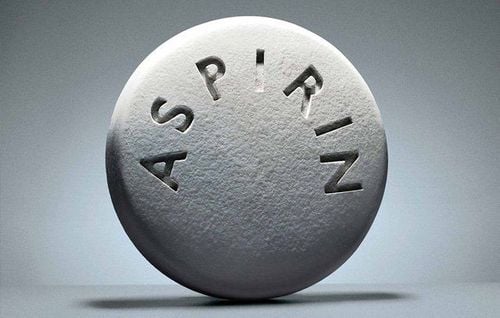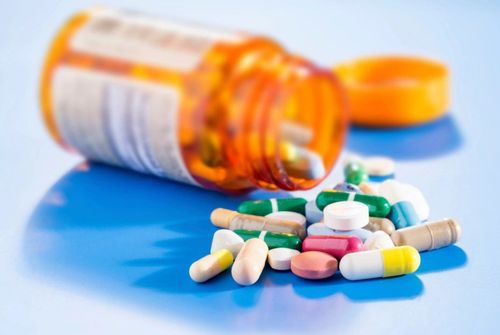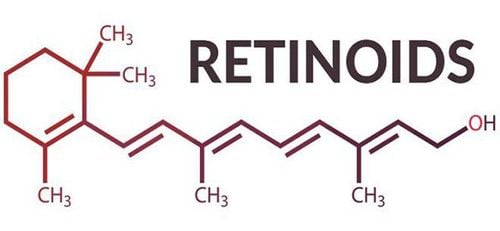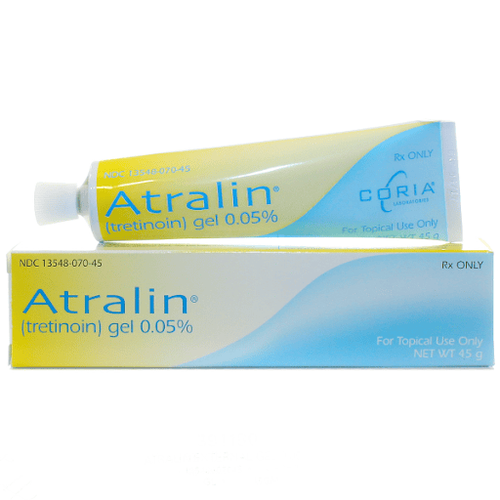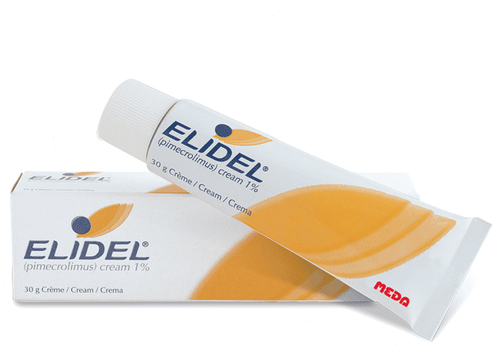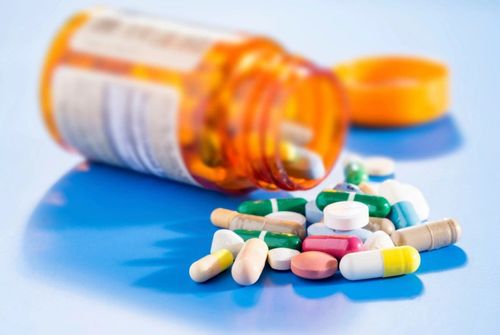This is an automatically translated article.
Acne is a skin condition where pimples appear. It is the most common skin disorder in adolescents. Accordingly, oral acne medications are of great concern in this age group. When used effectively, an effective, comprehensive acne treatment will help improve existing acne and prevent new acne from developing, helping to fade scarring and skin discoloration caused by acne.
1. Acne skin care
There is no single best oral medication for acne that requires a combination of treatments. In particular, skin care is an important aspect of the acne treatment process.
Skin hygiene - Wash your face no more than twice daily with a mild soap-free facial cleanser and warm (not hot) water. Some dermatologists recommend avoiding using a washcloth or loofah to wash your face, and instead use your hands. Vigorous washing or scrubbing can aggravate acne and damage the skin's surface. At the same time, do not pick or squeeze acne because this can make acne worse and cause skin to swell and leave scars. This is also a favorable condition that can cause the lesions to become infected.
Moisturizer - Using a moisturizer helps minimize dryness and flaking, which are common side effects of some oral acne medications. Moisturizers are labeled "noncomedogenic", meaning they are less likely to clog the pores of the skin, reducing the risk of acne formation.
Sunscreen - Some acne medications increase your skin's sensitivity to the sun (eg, Retinoids, doxycycline). To minimize sun damage, avoid overexposure to the sun and use a broad-spectrum SPF 30 or higher (blocks both UVA and UVB rays) first. when out in the sun.
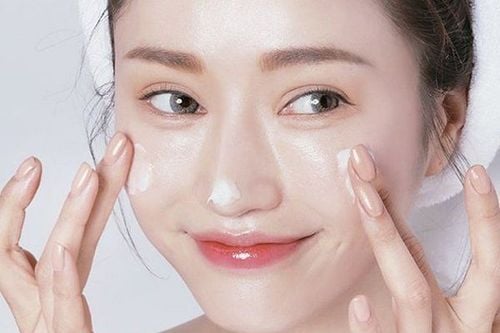
Sử dụng kem dưỡng ẩm giúp giảm thiểu tình trạng khô da và bong tróc da
2. Non-inflammatory acne treatment
Non-inflammatory acne that causes whiteheads or blackheads without redness or swelling of the skin can be treated with the following oral acne medications:
Retinoids Oral or topical retinoids are often recommended. for non-inflammatory acne. Examples of these drugs include prescription tretinoin and tazarotene, and adapalene available both by prescription and over-the-counter.
Retinoids are usually taken once daily, although people with skin irritation may reduce these levels to every other day or less, then increase as tolerated over time. Most people become more tolerant to retinoids over time. If skin irritation occurs, the patient should apply sunscreen with SPF 30 or higher before going out in the sun.
Other acne products People who cannot tolerate retinoids may be advised to try other topical medications, such as salicylic acid, glycolic acid, or azelaic acid. All of these treatments can be helpful in reducing non-inflammatory acne, and azelaic acid can reduce skin darkening caused by acne.
3. Treatment of mild to moderate inflammatory acne
Mild to moderate inflammatory acne is usually treated with retinoids in combination with topical antibiotics or benzoyl peroxide. This combination will be more effective than treatment with only one drug.
Benzoyl peroxide Benzoyl peroxide is usually applied twice daily, possibly in combination with a topical retinoid. At this point, the benzoyl peroxide should be applied in the morning and the retinoid at night.
Be aware that benzoyl peroxide can be irritating to the skin, sometimes causing redness and peeling, and can bleach clothes, towels, bed sheets, and hair.
Topical antibiotics Topical antibiotics, either cream or water, can control acne bacteria growth and reduce inflammation before oral antibiotics are needed for systemic action. Topical antibiotics include erythromycin, clindamycin, sulfacetamide, minocycline, and dapsone.
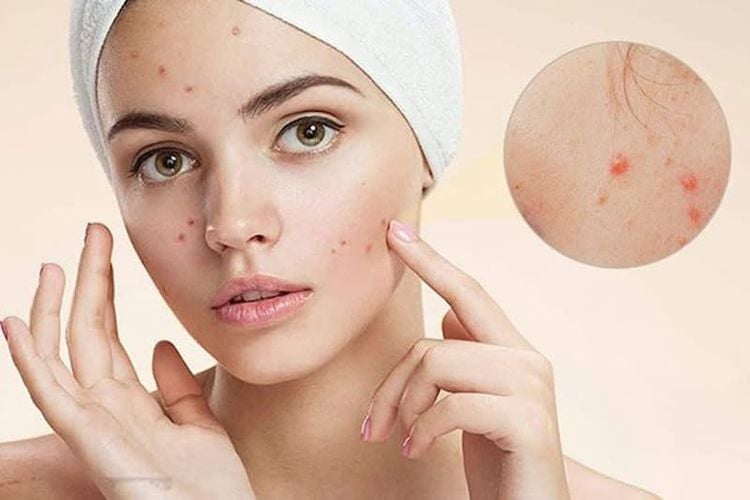
Mụn trứng cá viêm nhẹ đến trung bình thường được điều trị bằng retinoids kết hợp với thuốc kháng sinh tại chỗ hoặc benzoyl peroxide
4. Treatment of moderate to severe inflammatory acne
For people with moderate to severe inflammatory acne, oral acne medications including an oral antibiotic or an oral retinoid called isotretinoin may be recommended. At the same time, the treatment also needs to maintain the combination of topical drugs as well as female patients who will benefit from hormonal treatment with oral contraceptives.
Oral antibiotics Oral antibiotics work to slow the growth of acne-causing bacteria. However, oral antibiotics can have unpleasant side effects, including vaginal yeast infections in women and stomach upset.
Examples of oral antibiotics used for acne include doxycycline, minocycline, and sarecycline. However, they cannot be used during pregnancy or in children under the age of nine.
Oral isotretinoin Oral isotretinoin is a potent retinoid that is extremely effective in the treatment of severe acne. This is an oral medication that clears or significantly improves acne in most patients. Furthermore, oral isotretinoin is effective in treating the most irritating types of acne.
Oral isotretinoin is usually taken as a pill once or twice daily with food for several months, then stopped. In some cases, acne may initially get worse before it improves. To reduce the risk of an initial acne flare-up, isotretinoin is sometimes given in a lower dose during the first month of treatment.
Despite the positive effects, oral isotretinoin can have serious side effects and should be used with caution. Taking isotretinoin during pregnancy can cause miscarriage and life-threatening birth defects in the baby. For these reasons, there are a number of precautions that must be strictly adhered to before prescribing oral isotretinoin:
● All women must have a negative pregnancy test twice prior to treatment, and then they must have a weekly pregnancy test. months during treatment.
● Any woman who is or may be having sex with a male partner must use two forms of birth control for at least one month before starting therapy and continuing for up to one month after stopping isotretinoin.
Side effects associated with isotretinoin treatment:
● Possible dryness or peeling of the skin, pain and cracking of the lips, itching, muscle pain, nosebleeds, difficulty wearing contact lenses, and sensitivity to sunlight weather during treatment.
● There is a link between isotretinoin and depression and suicidal behavior. Although there is insufficient evidence to conclude that this is the cause of depression or suicidal behavior, patients taking isotretinoin should report any suspicious signs of depression or anxiety to their attending physician. treatment. In these situations, discontinuation should be considered.
● May cause increased blood triglyceride levels, liver damage, pancreatitis and changes in blood counts.
Hormone therapy Estrogen hormone can help offset the effects of androgens - hormones responsible for acne development. Treatment with estrogen in the form of birth control pills is sometimes recommended for women with moderate or severe acne.
However, not all birth control pills can be used to treat acne while some can actually worsen acne. Therefore, it is necessary to discuss with the treating doctor about the need for contraception at the same time during acne treatment.
Other oral acne medication Spironolactone is another medication that can be used to treat acne in women. Mechanism of spironolactone reducing the effects of androgens.
In addition, there are many other oral medications to treat acne according to experience being handed down in folklore, such as cold medicine for treating acne. However, the evidence on the effectiveness and safety of these drugs is still incomplete and should be avoided.
In a nutshell, acne is a common skin condition and there are many oral acne medications available. Current acne treatment methods are effective, but the regimen is very complicated and often has side effects, which need to be considered in detail on each subject. While there are many over-the-counter products that can help treat acne, severe cases need to see a specialist for the right treatment, both to improve skin damage caused by acne, and to ensure later aesthetics.
Vinmec International General Hospital is the address for examination, treatment and prevention of diseases, including Dermatology. When performing the examination process at Vinmec, customers will be welcomed and used modern facilities and equipment along with perfect medical services under the guidance and advice of experts. Good doctors, well-trained both at home and abroad.
Please dial HOTLINE for more information or register for an appointment HERE. Download MyVinmec app to make appointments faster and to manage your bookings easily.
References: uptodate.com, mayoclinic.org




